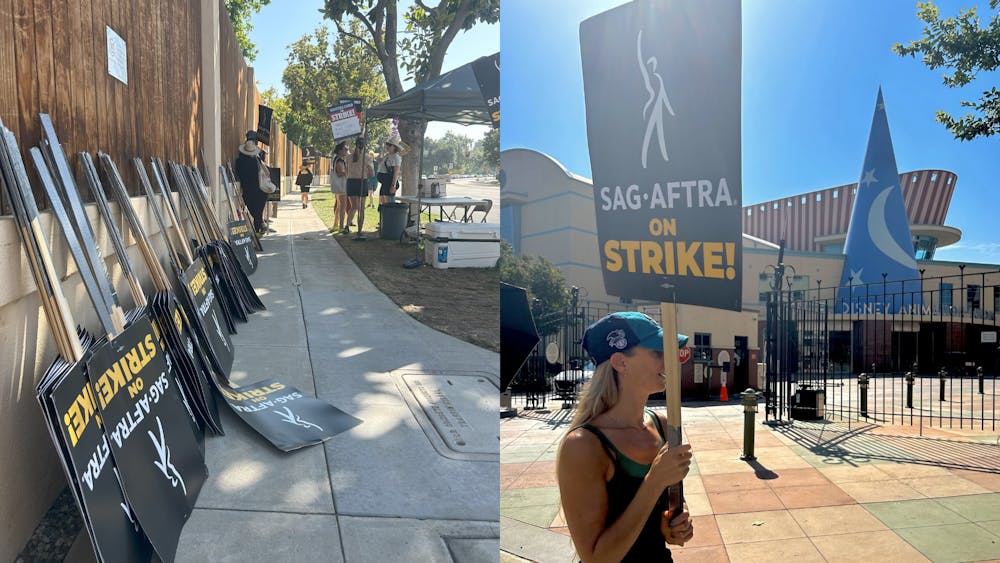The Writers Guild of America and the Screen Actors Guild - American Federation of Television and Radio Artists are on strike together for the first time in 63 years.
The WGA voted to strike against the Alliance of Motion Picture and Television Producers — an umbrella organization including Amazon, Apple, Discovery-Warner, Disney, NBC Universal, Netflix, Paramount and Sony. SAG-AFTRA voted to strike alongside the WGA 76 days later. Both unions voted to strike after production studios rejected proposals for the WGA Minimum Basic Agreement and the SAG-AFTRA Minimum Basic Agreement.
Hollywood labor unions renew their contracts, or Minimum Basic Agreement, with production studios every three years; however, if a fair agreement is not made, union members can vote to strike.
With both unions now on strike, members are picketing in front of production studios each day and stopping production on film and television projects. Both unions are negotiating for higher pay and safer working conditions, as well as regulation of artificial intelligence.
Though both strikes are currently based in Hollywood, CTA professors and students at Elon University are supporting the unions. This summer, Elon students and staff in the Elon in Los Angeles program — one of Elon’s most popular Study USA Programs — experienced and were affected by the entertainment industry strikes firsthand.
Assistant Professor of Cinema and Television Arts Kai Swanson said she is in full support of both unions and has been personally striking at Netflix and Warner Brother locations throughout the summer.
“They’re fighting for things that make a difference to everyone across the film and television industries: fair pay, respectful working conditions, even handling emerging technologies like AI,” Swanson said.
Despite the current circumstances of Hollywood labor, Swanson believes that this is a great time for her students to learn.
“They’re getting a front-row seat to a pivotal moment in the industry,” Swanson said.“It's a chance to understand the real-world implications of things like contract terms and union negotiations.”
Swanson said she includes contract templates into her production courses so her students can better understand industry contracts and how to advocate for themselves.
“Students gain an understanding of what to look for, how to read, and how to negotiate their own deals when they're hired on projects,” Swanson said.
Rising junior Kaitlyn Hannan, president of Cinelon, Elon’s student film organization, said she is grateful that both unions are fighting to improve working conditions in the industry.
“My hope is that the strong solidarity within the industry, and the joint efforts of the WGA and SAG-AFTRA, bode well for achieving meaningful change,” Hannan said. “It seems like both the WGA and SAG-AFTRA are prepared, while the studios are floundering.”
Both Hannan and Swanson said they are hopeful both unions will negotiate better conditions for themselves and for future writers and actors. The WGA has been on strike since May 2 and SAG-AFTRA joined them on July 14. With production studios holding their ground, Swanson said she does not see the strikes ending soon.
“The strike could drag on, industry slowdowns, creating financial hardship, and negatively impacting cities that thrive on creative economies like, LA, New York City, Atlanta, etc.” Swanson said.
There is no end in sight for either strike; however, Hannan is hopeful that there will be a beneficial end to both strikes.
“I expect both unions and the AMPTP to eventually come to an agreement that pleases everyone,” Hannan said.


